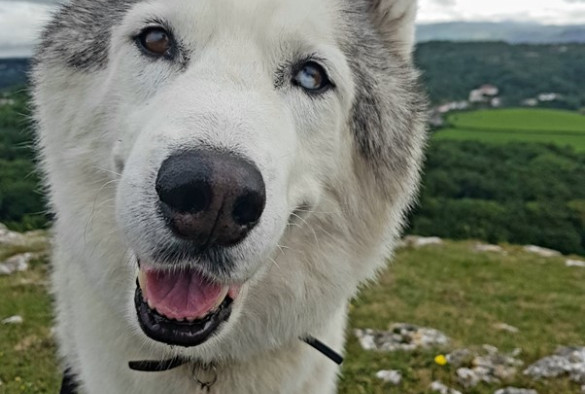
New research from the University of Liverpool, funded by BSAVA PetSavers, shows that dog owners think many important changes in their older pets are ‘just old age’, when actually they are signs of serious health problems.
The researchers surveyed more than 600 dog owners and more than 300 veterinary professionals across the UK. Dog owners were asked if they had noticed any of a list of 48 different clinical signs in their older dogs, and how urgently they thought they should seek veterinary advice when they noticed them.
The research team identified that dog owners regularly attributed potentially serious changes in older dogs to normal ageing, and thus may not take them to see a vet.
How often should an ageing dog see a vet?
The majority of owners believed a “healthy” senior dog (seven years plus) should go to the vet once a year, whereas veterinary professionals most commonly advised every six months. A minority (14%) of owners would take the dog only “if they got sick” but almost all (98%) of veterinary professionals would not advise this strategy. Sixteen percent of owners of dogs of all ages had not had any contact with their veterinary practice in the previous year.
To vaccinate or not to vaccinate?
Health checks often occur during vaccination appointments and 92% of veterinary professionals believed that senior dogs should receive yearly vaccinations; however, 28% of owners’ dogs of all ages had not been vaccinated in the previous year. In fact, a third of these owners did not believe that older dogs need vaccinations.
Urgency to seek care
Dog owners who stated that their dog had experienced a clinical sign typically reported less urgency to seek veterinary care than owners whose dog had never experienced it and responded to a hypothetical question asking what they would do if they noticed this sign in their dog.. The majority of veterinary professionals (85 – 100%) thought that it was moderately to extremely important for owners of senior dogs to seek veterinary advice for all 15 of the most common clinical signs. The three most common clinical signs reported by owners in their older dogs were slowing down on walks (57%), dental tartar (53%) and being stiff on rising (50%). However, fewer than 70% of owners would seek veterinary care for their dog within a week for dental issues (bad breath and tartar) or musculoskeletal issues (problem with stairs/jumping, slowing down on walks and stiff on rising).
Dog owners attribute clinical signs to “just old age”
Veterinary professionals reported that they believed owners commonly associated sleeping all the time, slowing down on walks, being stiff on rising, and the presence of dental tartar with old age rather than potential illness. Owners’ opinions were broadly in line with veterinary professionals’ perceptions of them. For example, 78% of owners believed slowing down on walks was a normal part of the ageing process and would not take their dog to the vet for and, and 77% for sleeping all the time.
Study co-author Professor Carri Westgarth said: “Perceptions of dog owners and veterinary professionals can influence the preventive healthcare and treatment provided to dogs, especially at the senior life-stage, when chronic diseases become more common. The differences in opinion highlighted by our survey suggest that new educational initiatives and more effective communication are required.”
Findings from this study have been used to support the design of a new resource, which can facilitate communication between owners and veterinary professionals. A checklist of common missed clinical signs for use pre-veterinary appointment would be supported by both owners and veterinary professionals surveyed in the current study.
The BSAVA PetSavers Ageing Canine Toolkit (ACT) leaflet and poster are currently in use in first opinion practice, and feedback is being collected to measure the toolkit’s impact on owners, veterinary professionals, and senior dogs.
Dr Sarah Williams from BSAVA PetSavers said: “Screening tools and toolkits have the potential to increase owner understanding and engagement with veterinary care, and through repeated application over time and implementation of necessary interventions, improve patient welfare and health span.”
The study Cross-sectional UK surveys demonstrate that owners and veterinary professionals differ in their perceptions of preventive and treatment healthcare needs in ageing dogs is published in Frontiers UK: https://www.frontiersin.org/articles/10.3389/fvets.2024.1358480/full